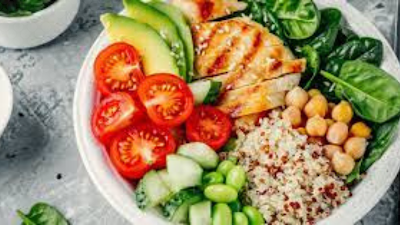Tips for a healthy diet | healthy food
5 tips for a healthy diet in 2022
A healthy balanced diet, and tips for a healthy diet, will give numerous benefits in 2019 and beyond. What we eat and drink can have an impact on our bodies' ability to fight infections as well as our risks of developing health problems later in life, such as obesity, heart disease, diabetes, and many types of cancer.
The specific elements of healthful eating will vary depending on a variety of factors such as our age and level of activity, as well as the types of foods accessible in our communities. However, there are some universal tips for a healthy diet that can help us live healthier, longer lives across cultures.
Some Tips
1. Eat Healthy foods.
2. Reduce your salt intake and your use of certain fats and oils.
3. Limit your sugar intake
4. stay away from dangerous and damaging drinks.
1. Eat Healthy foods
Our bodies are extraordinarily complex, and no single food (apart from breast milk for children) has all of the nutrients we require for them to function optimally. To keep us going strong, our diets must include a diverse variety of fresh and healthy foods.
Here are some suggestions for a well-balanced diet:
Aim to eat a variety of staple foods like wheat, maize, rice, and potatoes, as well as legumes like lentils and chickpeas, plenty of fresh fruit and vegetables, and animal-based meals in your daily diet (e.g. meat, fish, eggs and milk).
When possible, choose wholegrain foods such as unprocessed corn, maize, oats, wheat, and brown rice, which are full of fiber and can help you feel fuller for longer.
Choose raw veggies, unsalted nuts, and fresh fruit as snacks instead of items heavy in sugars, fats, or salt.
2. Reduce your salt intake and your use of certain fats and oils.
Blood pressure can be raised by eating too much salt, which is a major risk factor for heart disease and stroke. The majority of people in the world consume far too much salt: on average, we consume twice as much as the WHO recommended daily limit of 5 grams (equal to a teaspoon).
3. Limit your sugar intake
Even if we don't add salt to our food, we must be conscious that it is frequently used in processed foods and beverages, and in large quantities.
Here are some suggestions for lowering your salt intake:
Use salt sparingly when cooking and preparing foods, and limit the use of salty sauces and sauces (like soy sauce, stock, or fish sauce).
Avoid salty snacks, and instead go for fresh, healthful snacks and over-processed meals.
We all need fat in our diets, but too much of it – especially the wrong sort – raises the risk of obesity, heart disease, and stroke. Trans fats made in a factory pose the greatest health risk. A high-fat diet has been linked to a nearly 30% increase in the risk of heart disease.
Here are a few suggestions for lowering your fat intake:
Soybean, canola (rapeseed), corn, safflower, and sunflower oils are better alternatives to butter, lard, and ghee.
Choose white meats such as poultry and fish that are lower in fat than red meat, cut visible fat from meat, and minimize processed meat consumption.
Instead of frying food, consider steaming or boiling it.
Always read labels and avoid any processed, quick, or fried foods containing trans fat from industrial sources. It's in butter and oil, as well as pre-packaged snacks, fast meals, and baked, and fried items.
4. stay away from dangerous and damaging drinks.
Sugar is harmful to our teeth, but it also raises the chances of excessive weight gain, which can lead to serious, chronic health issues.
It's crucial to be aware of the amount of "hidden" sugars in processed foods and beverages, just as it is with salt. A single can of soda, for example, might have up to 10 teaspoons of added sugar!
Here are some suggestions for lowering sugar consumption:
Limit sugary drinks and carbonated beverages, such as fruit juices and fruit drinks, liquid and powder concentrates, tonic water, energy and powdered drinks, ready-to-drink tea and coffee, and flavored milk drinks.








0 Comments
Post a Comment
please do not enter any spam link in the comment box.